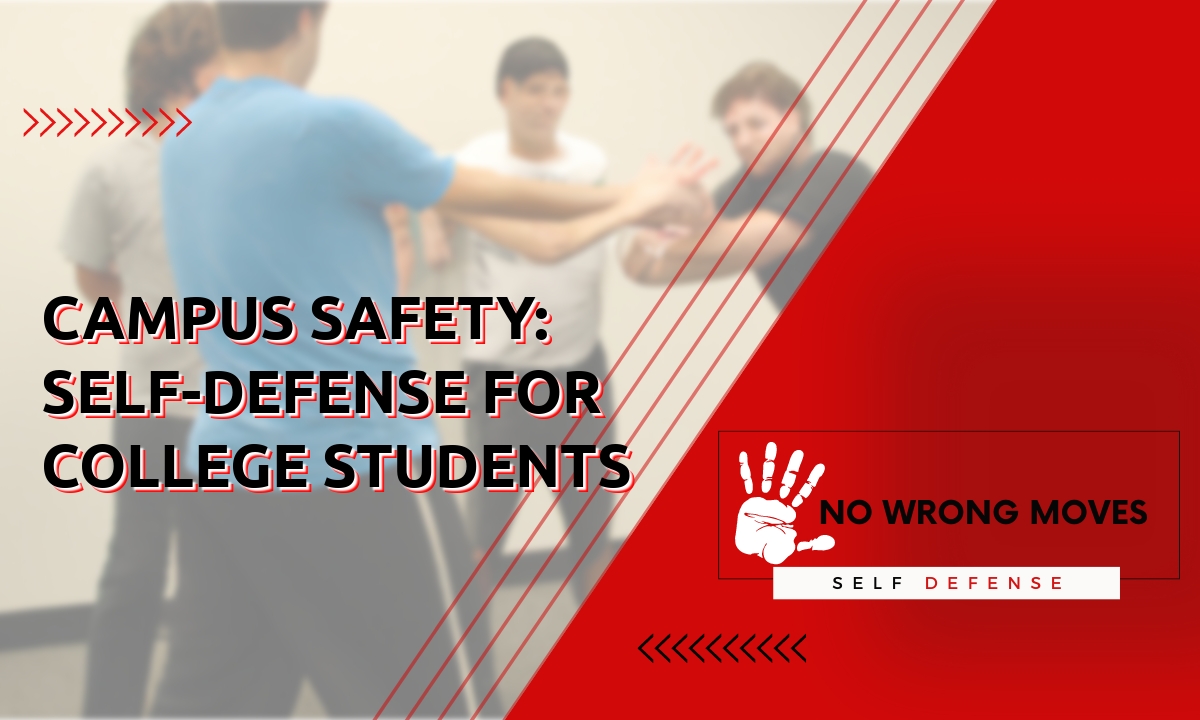
College is a time of great excitement, adventure, and exploration. It's at this time when young adults learn how to navigate life and claim an identity of their own.
But that doesn't mean it's without its risks.
As college students navigate the campus landscape, they must also be keenly aware of their safety and security.
From walking alone at night to protecting themselves in dangerous situations, there are many ways to stay safe while on campus.
Here we look at some practical self-defense tips and strategies designed specifically for college students.
Learn About Campus Security Strategies

The first step in staying safe on college campuses is learning about potential threats and how to protect yourself from them.
Most colleges have security measures in place--such as cameras, guards or emergency phones--but it’s still important for students to familiarize themselves with these resources so they know where to turn if needed.
Many campuses also offer student safety awareness programs, which provide information about crime prevention techniques as well as personal protection plans, like avoiding walking alone late at night or carrying pepper spray when possible.
It would also be beneficial for students to do a bit of research on the latest safety trends within their area. If they do, they'll be able to make informed decisions about their own safety and security needs while they're on campus.
This could include anything from attending self-defense classes offered by the school or keeping an eye out for suspicious activity on campus grounds.
By understanding what types of threats may exist on campus—both physical and non-physical—students can take proactive steps towards ensuring their own personal well-being while navigating life away from home during these formative years.
Create a Personal Protection Plan

The next step after familiarizing oneself with common dangers present on campus is creating a plan of action should anything occur. Accidents or mishaps can and still do happen, despite one’s best efforts at preventing them beforehand.
This “plan B” should involve details like who will be contacted if help is needed; how one will get back home safely; any defensive tactics that may be necessary; what items may come in handy (a whistle, pepper spray); among others.
Having this plan readily available ensures a rapid response during crisis moments rather than relying solely upon instinctual responses, which tend not to work very well under high-stress levels.
Dorm Room Security Measures

Because dorm rooms are often shared living spaces between multiple individuals, it becomes increasingly difficult to keep certain items secure (such as valuables).
All occupants share the same key access card, making everyone a potential suspect for theft or personal neglect should anything go missing.
To avoid such issues arising, it would behoove students to take additional measures to ensure everything in the room is adequately kept track of, such asL
- Determining ahead of time specific rules regarding visitors entering the room unannounced;
- Installing locks on valuable item containers;
- Storing computers, cellphones, and other electronic devices within locked cabinets when not in use;
These simple precautionary measures go a long way towards reducing the chances of any potential issues regarding lost items.
Defending Against Sexual Assault In College
Sexual assault remains an issue on college campuses nationwide.
Fortunately enough however, there are various methods which can enable individuals to protect themselves, avoiding becoming victims of one of the most heinous crimes that can be seen in a college campus. Some of these include:
- Being mindful of your surroundings at all times;
- Avoiding walking alone in the dark or in isolated areas;
- Signaling for help in case a dangerous situation occurs;
- Engaging with school programs that promote a healthy student environment;
- Encouraging the school to take more proactive measures to prevent sexual assault.
Knowing the precautionary steps available will greatly reduce the risks of a student becoming a victim, significantly enhancing their safety overall.
Self-Defense Classes For Students

Taking self-defense classes is a great way to build up confidence among college students and teach them valuable techniques needed to defend themselves against attackers or any dangerous type of force.
These courses are usually offered throughout campuses nationwide and vary in difficulty depending upon the student's preferences.
The training they'll provide is comprehensive. It will almost certainly include techniques for strengthening mental resilience, which can be particularly useful when confronted with unfamiliar, safety-related stressors while a student is on campus.
Student Safety Awareness Programs

While students can and should learn how to protect themselves, it would be just as beneficial for them to educate others on how to do likewise, such as through promoting school-sponsored safety programs and campaigns online, in whatever social media platform they use.
This will allow students to actively participate in the enhancement of campus security while also learning about broader topics related to personal protection in a diverse environment—something that will come in handy once graduation rolls around.
Conclusion

There's a common misconception that self-defense is all about physical strength or martial arts skills, but that just isn't true.
It's also about being aware of your surroundings, recognizing any potential threats in your area, and having the willpower and mental fortitude to defend yourself when necessary.
So by all means, take the time to invest in yourself and your safety. Look out for any self-defense classes in your area, practice situational awareness, and don't be afraid to speak up or ask for help if you feel threatened.
If you take these steps, you'll be much more able to take control of your own safety, feel confident, and enjoy a greater sense of security in your day life.
Stay safe, stay empowered, and remember that you are always worth protecting.
[author-box-jpx-fitness]
